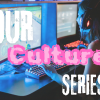
Mike Quille continues the ‘Our Culture’ series with a summary of the Culture Matters mission; an overview of the general problems in cultural provision, defined broadly to include not just the arts but all learned human activities; and a summary of the kind of policies needed to complement radical social, economic, and political change.
This year the Culture Matters co-operative has been celebrating ten years of cultural activism. Our central mission has always been to promote cultural democracy – to present and flesh out the details of a democratic, socialist perspective on culture.
To that end, we’ve published thousands of creative and critical pieces – articles, essays, poems, images, reviews, short stories – on a whole range of cultural topics. Not just the arts, like film, poetry, music etc., but other cultural activities that working people engage in, such as sport, broadcast media like TV and radio, religion and spirituality, fashion, food and drink, and social media. We’ve also published around 100 books; organised Bread and Roses Awards for poems and songs; and run workshops for trade unions on cultural issues.
We’re currently running this series of articles called ‘Our Culture’. What do we mean by ‘our culture’, by cultural democracy? Well, Karl Marx argued that “the ruling ideas of every epoch are the ideas of the ruling class,” meaning the dominant beliefs and values in society are those that serve the interests of the powerful, wealthy class that controls the means of both material and mental production (including cultural and artistic experiences).
So we think that most if not all areas of cultural activity, which are essentially enjoyable and essential for human flourishing, are marked and often disfigured by the domination of ruling-class ideas, values and practices in their content, organisation, ownership and management. The class ceiling which pervades economic and political institutions is also alive and well in the cultural sector, including sport, the media and organised religion.
There is a growing body of evidence (eg in Culture Is Bad for You, by O’Brien, Brooks and Taylor) pointing out the deep, structural inequalities in the cultural landscape. These inequalities adversely affect workers’ access and enjoyment of culture; the employment and careers of workers in the cultural and creative industries; and the way working people are represented in cultural products and experiences. There is clear evidence that:
- A great deal of publicly-funded cultural provision is made and consumed by a relatively thin slice of well-off parts of British society, and tourists. It is scandalous that these public funds include funding from the Lottery, which is heavily supported by the working class
- There is classism – significant barriers to working-class people who wish to make and maintain a career in the cultural industries, including sport, the media and organised religion
- Local grassroots cultural production of many kinds – music bands, sports activities, festivals, youth activities etc. – have experienced severe cutbacks in the last 15-20 years
- There have also been massive cuts to arts funding, facilities, education, and training particularly affecting state schools and young, working-class people, affecting enjoyment, appreciation and engagement as workers and consumers
- Working people, particularly those on low incomes, are increasingly priced out of enjoyment of sports, leisure activities and other cultural experiences
- The representation of working people in the broadcast and print media – on TV, in literature, films, exhibitions and the heritage industry etc. is generally inadequate, inaccurate and unfair.
The articles in the ‘Our Culture’ series will present a more detailed analysis and policy proposals – a new approach and fresh solutions which apply the basic principles of social ownership and control over cultural experiences so that:
- current provision is protected and rebalanced
- the planning, direction, content and control of cultural experiences are democratised and shared more widely, so that working people can decide, plan and engage with local cultural production of all kinds
- a refreshed cultural landscape is created which reflects values of everyday creativity, equality, justice, and inclusiveness.
Many areas of the country are facing problems of low-paid, precarious employment, child poverty, an increase in inequality and a decrease in wages and benefits. We need radical political change in order to facilitate cultural democracy – the cultural sector cannot itself solve all of our social and economic problems. But neither do cultural organisations and workers have to reflect or entrench inequality and injustice, and misrepresent and devalue working people’s lives.
The power of cultural products and experiences of all kinds to bring enjoyment and enlightenment, to imagine alternatives and bring people together in common experiences, makes it a uniquely effective force to tackle class-based social divisions and inequalities.
















